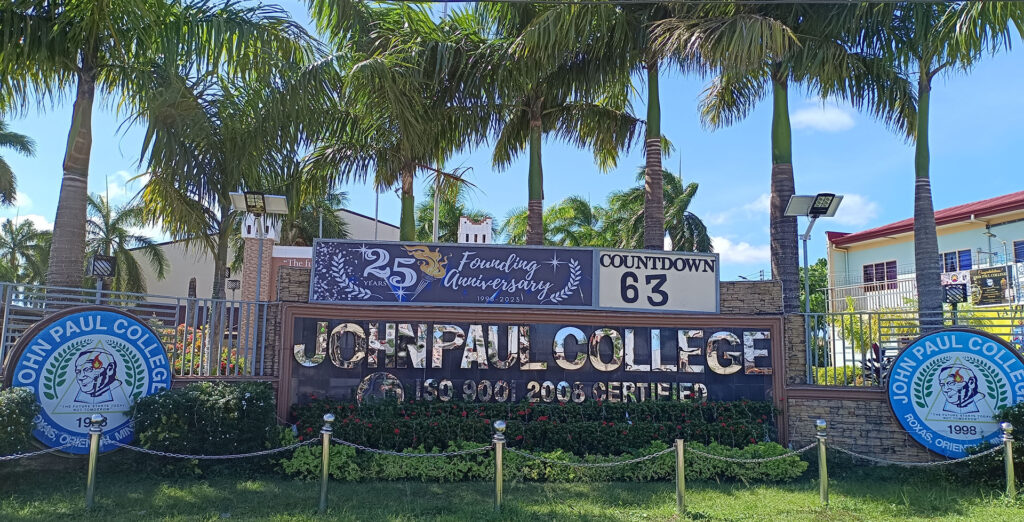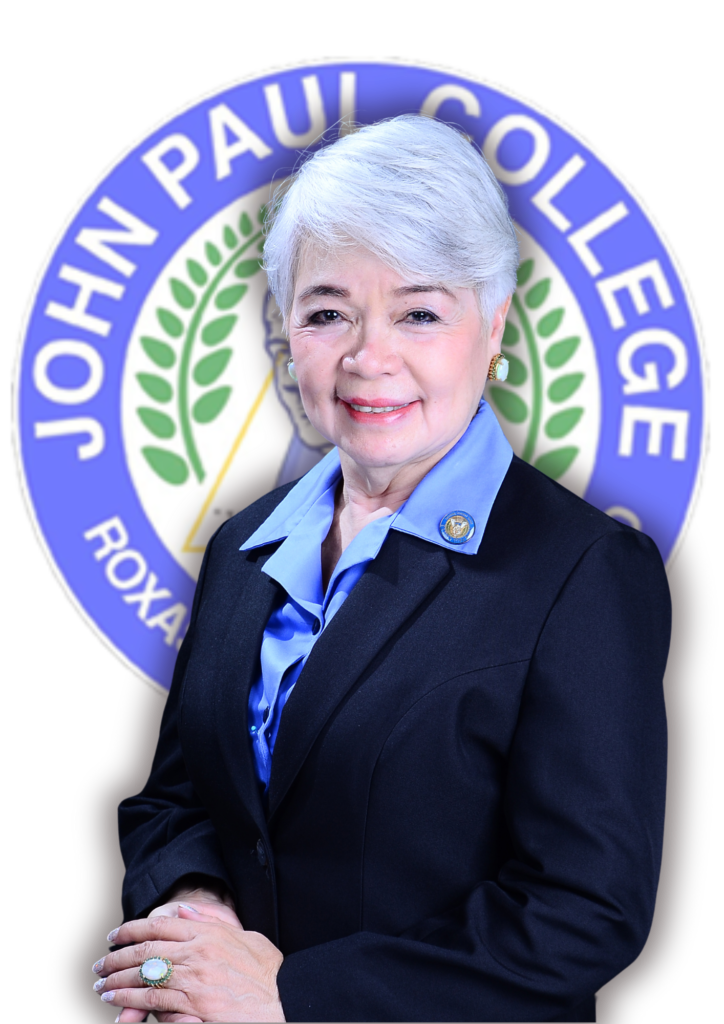
ABOUT JPC
The Beginnings of JPC
In January 1996, John Paul Montessori School, Inc. was conceived when two dreamed of putting up a children’s school that would cater to the education of the youth of Roxas. These two educators desired to revolutionize teaching methodology in rural areas to be at par with city education. In February, they presented the idea to Engr. Manuel G. Andaya and Mrs. Rosalina S. Andaya and the latter who shared the same vision gave their full financial and moral support for this endeavor.

John Paul College, as an educational institution, is inspired by the teachings and philosophy of St. John Paul II relative to education through the following precepts:
- “The future starts today, not tomorrow.” Thus, exhorting students to put their goals into action today without any excuses. They must learn not to wait until tomorrow to start what they can do now.
- Education is explored by giving importance to the person, the action, community, solidarity and participation. Thus, anchoring in an educational philosophy which is more person-centered by recognizing the need to be conscious of the personal experience of each student.
- An education that recognizes that faith and reason are both essential for students to grow in knowledge and wisdom. Thus, believing that to grow in relationship with God is achieved by loving knowledge, striving for virtue, and caring for others.
Mission and Vision
Our Mission
John Paul College shall be a leading academic center, particularly in Southern Mindoro. It ‘shall provide the essentials for quality education through competent human resource, responsive to the needs of the community, attuned to technological advancements, and promoting cooperation with other institutions.
Conforming to its academic mission, John Paul College will create righteous, self-reliant, ecologically sensible and fully competitive graduates. It shall advocate innovations and modernism while protecting Mindoro’s indigenous cultural heritage through progressive research and dedicated community service.
Our Vision
John Paul College, founded in 1998, envisions itself as the center of learning and academic excellence in the Province of Oriental Mindoro. It is inspired by the ideals of John Paul II on self-giving, social justice, love of nature and intellectual toughness as it pursues the formation of a holistic individual living up to the standards of Christian faith.
Message from the President

Quality Policy
John Paul College as the center of learning and excellence in the Province of Oriental Mindoro is committed to providing quality education to its students by maintaining its well-established standards and openness towards needed improvements.
All instructions, research and community extensions program will be implemented with quality and be in parity with accreditation requirements and in compliance with local and international regulatory standards.
John Paul College commits its resources, facilities and efforts towards the attainment of quality education.
Its programs and advocacies shall be monitored, evaluated, updated, re-formulated according to its policy.
Institutional Goals
- To create a school environment conducive to quality learning.
- To offer and provide education which is responsive to the needs of the community, attuned to technological advancements and changing global conditions.
- To integrate its core values in human relations ensuring adherence to the ideals of St. John Paul II.
- To live up with its commitment as the local communities’ partner for their transformation and improvement towards a better quality of life.
- To ensure and maintain its good image to be able to effectively encourage others to assimilate to JPC ideals, principles and values.
Institutional Objectives
- Provide reliable facilities, laboratories and equipment.
- Promote the continuous development of manpower to conform with students’ needs, academic demands and regulatory standards.
- Continuously upgrade, update and develop the curricula.
- Effectively engage in relevant research.
- Give relevant social services to identified communities.

